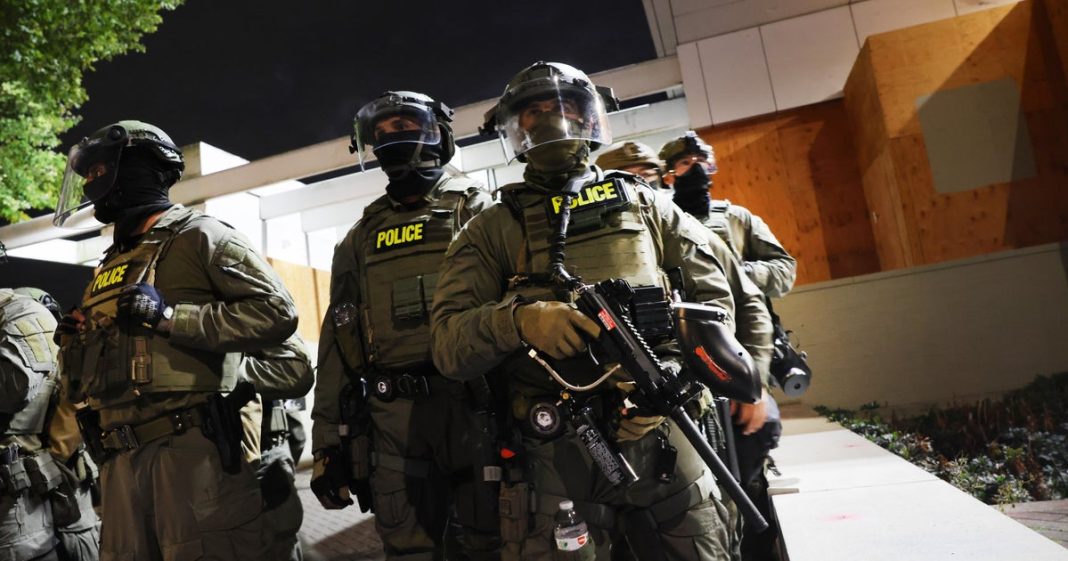Charlotte, North Carolina, finds itself at the center of a significant shift in immigration enforcement. The Department of Homeland Security (DHS) has confirmed that federal authorities are initiating an immigration crackdown in the city, signaling a heightened focus on immigration law violations within the Queen City and its surrounding areas. This move is expected to bring a noticeable increase in federal immigration activity, potentially impacting a wide range of individuals and businesses.
Understanding the Federal Presence
When the DHS announces an “immigration crackdown,” it typically means a surge in resources and personnel from agencies like Immigration and Customs Enforcement (ICE) and U.S. Customs and Border Protection (CBP), alongside other relevant federal entities. These operations often target individuals who are undocumented, those with outstanding deportation orders, or those who may have committed other violations of federal immigration law. However, the scope can broaden to include investigations into employers suspected of hiring undocumented workers or even operations aimed at dismantling human trafficking networks.
For Charlotte, this translates into a more visible federal presence. Residents might observe increased enforcement actions, which could range from targeted arrests to more general operations. The intent, according to DHS statements, is to uphold federal immigration statutes and ensure national security. However, for many in the community, it ushers in a period of uncertainty and apprehension. Local businesses, especially those in sectors heavily reliant on immigrant labor, could face disruptions, while families with mixed immigration statuses may grapple with increased stress and fear.
Potential Ripple Effects Across Charlotte
The implications of such an operation extend far beyond just direct enforcement. An immigration crackdown can create a complex web of social and economic ripple effects. On the economic front, industries like construction, hospitality, and agriculture, which often have significant immigrant workforces, could experience labor shortages or increased scrutiny of their hiring practices. Businesses might invest more in compliance measures, potentially leading to higher operational costs.
Socially, the impact can be profound. Communities with large immigrant populations may experience heightened tensions and a breakdown of trust between residents and law enforcement, even local police who are not directly involved in federal immigration actions. Schools might see increased absenteeism as parents fear sending their children to public spaces, and community organizations often report a surge in demand for legal aid and support services. As one local advocate, Maria Sanchez, put it, “This isn’t just about enforcement numbers; it’s about the fabric of our community. When families live in fear, everyone feels the impact, from local businesses to our schools.” The fear of deportation can lead individuals to avoid seeking essential services, including healthcare, out of concern that doing so could expose their immigration status.
Navigating the New Enforcement Landscape
For those living and working in Charlotte, understanding their rights and knowing where to seek reliable information becomes paramount. Community organizations, legal aid services, and advocacy groups often step up during such times to provide resources, ‘know your rights’ workshops, and legal counsel. Employers, too, are urged to review their compliance procedures to ensure they are adhering to federal employment eligibility verification requirements.
The federal government’s decision to intensify immigration enforcement in Charlotte underscores a broader national strategy, but its localized impact will be felt directly by the city’s residents and institutions. As operations unfold, the community will be watching closely to understand the full scope and long-term consequences of this significant federal action.
In essence, Charlotte is now on a new frontier of immigration enforcement. The coming weeks and months will reveal the full extent of this crackdown, shaping the lives of many and undoubtedly influencing the city’s social and economic landscape.




